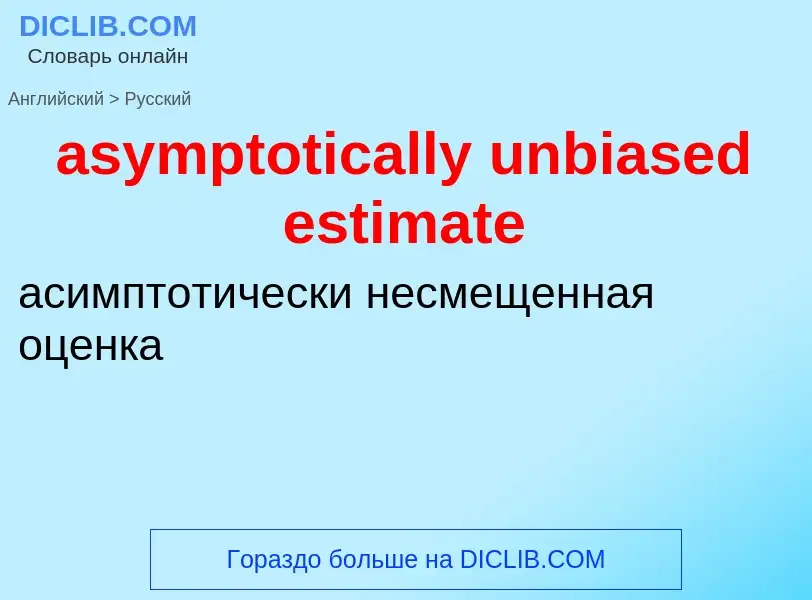Перевод и анализ слов искусственным интеллектом ChatGPT
На этой странице Вы можете получить подробный анализ слова или словосочетания, произведенный с помощью лучшей на сегодняшний день технологии искусственного интеллекта:
- как употребляется слово
- частота употребления
- используется оно чаще в устной или письменной речи
- варианты перевода слова
- примеры употребления (несколько фраз с переводом)
- этимология
asymptotically unbiased estimate - перевод на русский
статистика
асимптотически несмещенная оценка
математика
статистическая оценка
статистика
2) оценщик
['estimeitə]
общая лексика
(статистическая) оценка
формула оценки
лицо
производящее оценку
оценка
оценочная функция
сметчик
статистика используемая в качестве оценки
таксатор
существительное
общая лексика
оценщик
эксперт по оценке
сметчик
таксатор
математика
оценка
оценочная функция
математика
асимптотически несмещенный
- optimum estimator
- point estimator
общая лексика
оценочное значение
математика
расчётное значение
оценка
Смотрите также
2) оценка
Википедия
In statistics, an estimator is a rule for calculating an estimate of a given quantity based on observed data: thus the rule (the estimator), the quantity of interest (the estimand) and its result (the estimate) are distinguished. For example, the sample mean is a commonly used estimator of the population mean.
There are point and interval estimators. The point estimators yield single-valued results. This is in contrast to an interval estimator, where the result would be a range of plausible values. "Single value" does not necessarily mean "single number", but includes vector valued or function valued estimators.
Estimation theory is concerned with the properties of estimators; that is, with defining properties that can be used to compare different estimators (different rules for creating estimates) for the same quantity, based on the same data. Such properties can be used to determine the best rules to use under given circumstances. However, in robust statistics, statistical theory goes on to consider the balance between having good properties, if tightly defined assumptions hold, and having less good properties that hold under wider conditions.




